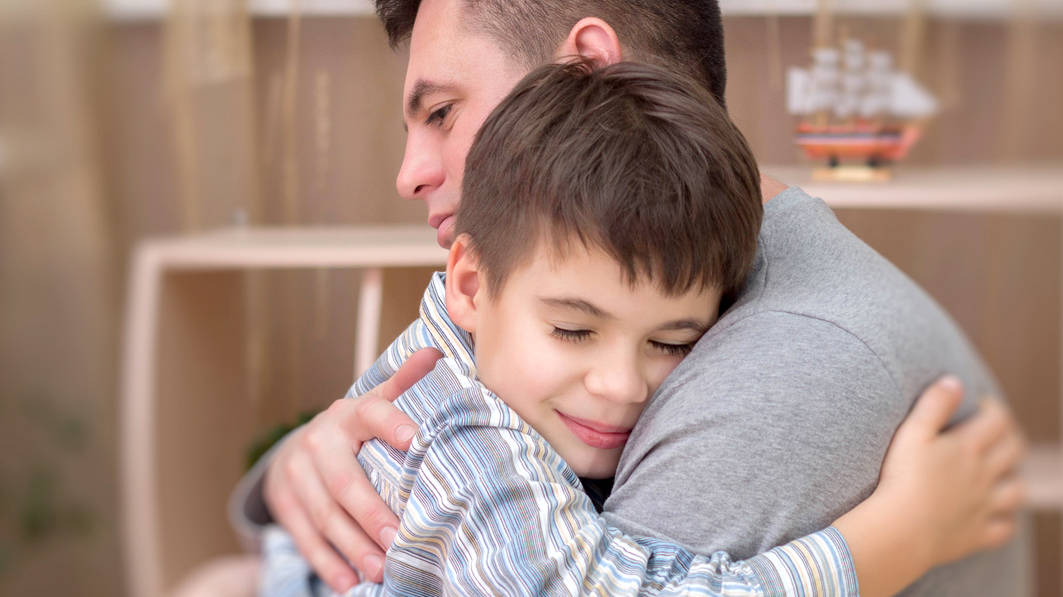I remember when my wife and I had to face the fact that our oldest son was a drug addict. We had been struggling with him for years, but things had recently escalated. He was in jail, out of control and had stolen enough money that our family was in financial trouble. Our whole focus was our son’s drama and our circumstances. Our worries consumed us, leaving us little time to care for our other sons.
Our experience isn’t unusual. Parents are forced to deal with the “problem” child, hoping the other children will take care of themselves. But as parents, we do that to their (and our) detriment. So how do we keep our family healthy, even as we try to woo back a prodigal child?
Don’t assume
Just because they don’t express their emotions or tell you outright what they need, that doesn’t mean that all is fine in their world. They are experiencing the same drama you are, but they don’t have the maturity or network to handle it. They need you to help them process and navigate through it.
While my wife and I were working to handle our oldest son, we had two other boys at home. At the time we would have told you that our other sons were sad but otherwise seemed to be fine. They gave us no indication anything was wrong with them, and when we would ask, they’d tell us they were OK.
Lori and I would often tell friends how grateful we were that they were doing well and how that enabled us to chase the stray sheep (like in the parable of the shepherd and the lost sheep from Luke 15:3-7). It wasn’t until later that we discovered our praise for them was wildly misinformed. Our sons were not fine. They were in much more pain than we had realized.
Encourage talk
Asking our kids a quick, “How are you doing?” and letting things go when they respond with a “fine” is not encouraging them to talk. They need our undivided time and attention. This was the mistake we made with our sons, believing that their “fine” really was fine.
The reality is that many times the “good” kids won’t want to put more burdens on their parents, so rather than sharing their pain with them, they bury it and deal with it alone. Or they rely on those who may give unwise counsel, which can lead them to deal with their pain in unhealthy ways, such as through drinking, drugs, stealing, etc.
When we discovered from a family member that our sons had opened up to them, we knew we needed to create a safe space for our children to share with us. We sat with them and tried to go deeper. But they continued to assure us they were OK.
We didn’t want to pressure them into talking, but we continued to let them know they weren’t adding to our burden and that we were just as concerned about them and wanted to ensure they felt heard and loved.
Seek professional counseling
Sometimes kids need a neutral person with whom they can share what they’re really feeling without the fear of hurting someone by their admissions. That’s where professional counseling can help. My wife and I went initially and found it helpful. When we mentioned that option to our boys, they were reluctant. But when we let them know how great counseling had been for us, they were willing to give it try. It proved to be a lifesaver for our family.
We learned that our middle son was angry with his older brother because he felt he had stolen his parents and his teen years with his drama. We may not have been spending all of our time on the one prodigal, but we were tapped emotionally — even when not dealing with the situation directly. We also found that our youngest son was angry with us for putting boundaries on our oldest son, before and after he was in jail, because they were keeping him from his hero. Unfortunately, his hero worship of his brother was leading him into some of the same behaviors.
So many things came to light. Because we now knew what was happening, we were able to take action. The counselor not only helped our boys walk through their feelings that led them to be honest with us, but he also walked us through how to deal with their honesty.
Time without a prodigal focus
When we have a prodigal child, his or her behaviors and attitudes can become all-consuming for parents. Fortunately, friends from our small group told us they grew up in a home with a prodigal, and it led to profound bitterness in their lives that carried on to this day. We asked what would have helped, and they suggested that spending more time with their parents that didn’t focus on the wayward child may have helped.
Lori and I took their words to heart. Even though we were deeply burdened by our missing son, we became determined to concentrate on the other two. We focused on their individual activities (sports), and we took them on vacations and mission trips without our oldest son. Those times helped our boys feel safer to share with us, and we were able to parent them individually without the constant shadow of their brother’s choices.
I won’t say this was easy, as our hearts were broken. Almost everything we did without him hurt. But we knew we needed to carry on for the sake of our other children.
Trust God for the outcome
It was one of the darkest, hardest times of our lives, but God brought such a redemption story out of our prodigal experience! We never gave up hoping and praying for our prodigal. Meanwhile, we renewed our commitment that we would not neglect our other children; we would work hard to keep them healthy.
When our oldest son eventually came home and stayed off drugs, our younger sons were glad and didn’t feel as if we’d been absent in their lives. They’d already gotten their parents back, thanks to wise counsel we’d received.
As parents, we have no guarantees that prodigals will return or that our other children will be unscathed by the ordeal. But we can be aware of the silent needs of our kids at home and focus on parenting them to the best of our ability. Then we can trust that God will provide the strength our prodigal, other children and we need to handle whatever comes our way.




















